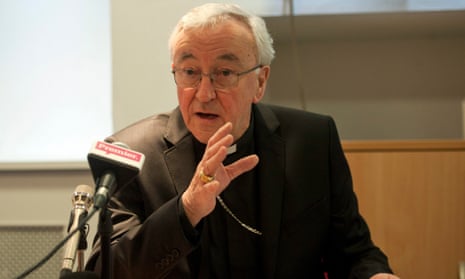Catholic bishops have singled out poverty as a key issue for voters before the general election, saying too many people are forced to turn to the state and organisations such as food banks.
The Catholic Bishop’s Conference of England and Wales also said “respecting life” - including issues such as abortion, assisted suicide and “three-parent babies” – were crucial factors for parishioners when assessing candidates at the poll.
In an open letter to worshippers, the bishops wrote: “There are many families in our communities who are financially vulnerable and struggle to make ends meet; housing and living costs are high. Many people do not have a living wage to support them and their families.
“Too many have to turn to the state for additional income and to external voluntary support such as food banks. Government policies should be assessed on the ways in which they impact those most in need, including who are homeless or hungry, and how they support and strengthen the family and its capacity to flourish.”
Presenting the letter at a press conference in London, the archbishop of Westminster, Cardinal Vincent Nichols, said: “It is shocking that in a society which is so rich as ours that there are people, even people in employment, who are dependent on food banks and handouts.”
He was questioned about the Catholic church’s approach to the living wage after it emerged jobs in the Church of England are paying below the threshold. He said: “This organisation, the Bishop’s Conference, certainly pays the living wage to all its employees. I can say for certain that every person on the payroll of the archdiocese of Westminster is paid the living wage.
“Part of our parish audits are always to look at how anybody else, who is working at the parish and who might not be on the diocesan payroll, at what level they are being paid and to enhance that to the living wage.
“The campaign of the living wage is more complex than that because it also asks those who support it to ensure that all suppliers are also paying the living wage. I know that is being pursued here through the Bishop’s Conference.
“In the diocese we are pursuing this but it’s not simple. For example, we have over 300 school projects at the moment. To try and ensure that everybody who is employed by somebody else, but supplying one of our schools, is on a living wage is difficult, but that’s what we are pursuing.”
Immigration, education, the future of Europe and religious freedom all also feature as topics in the letter. Nichols said understanding the sources and causes of poverty was not simple.
He added: “I recognise the real efforts that the present government makes in its overhaul of the welfare society to improve the levels and simplicity of the support that is offered for those who are in genuine need. I think their strategy is long-term.”
He said sanctions against benefits claimants had created “short-term disastrous situations for many people”, adding: “This is a complex problem and I believe it’s right that whichever government we have has to tackle it vigorously.”
The letter expressed support for policies “that protect the fundamental right to human life”. It said: “The unborn child is … tragically in our society often the innocent victim of abortion. We oppose calls to introduce assisted suicide or euthanasia.”
The archbishop also cited the recent issue of three-parent embryos. The letter said future government policy “should ensure that the poorest have access to high-quality education”, while the bishops wrote that “the principles of solidarity and subsidiarity assist us in how to think about the future of Europe”.
The letter also highlighted the role of voluntary organisations amid rising inequality, increased loneliness for many older people and job insecurity. Immigration was described by the conference as a “highly emotive issue”.
The letter added: “Every country needs a policy to control immigration, as well as a positive commitment to policies that facilitate the integration of migrants into the mainstream of society. There is a great danger of blaming immigrants for the ills of society.”
Violent extremism and the persecution of people for their beliefs have led many to suffer “appalling violence”, the letter said.
Nicholls called for Catholics who may be disillusioned by politics to “stir yourselves”. Asked about those who may agree with the anti-politics sentiment of figures such as Russell Brand, he said: “I would ask them to pay more attention to me than to him.”
He appealed for the level of debate to be raised in the buildup to the election, adding: “We are talking about the future of our society. I would love to see politicians decline the temptation to appeal to fear.”
Last week C of E bishops sparked controversy by issuing a letter calling for a “fresh moral vision” ahead of the election.

Comments (…)
Sign in or create your Guardian account to join the discussion